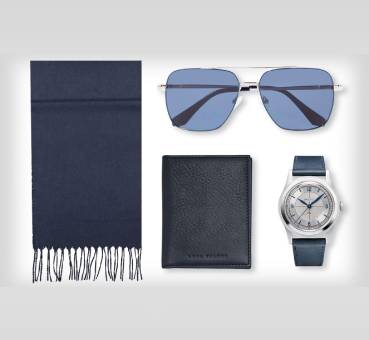
Branded as “the first Western virtual influencer to have achieved global success” Lil Miquela made her debut on Instagram in 2016. Named Miquela Sousa or Lil Miquela, she fascinated many with her human-like appearance causing many to speculate if she was a marketing stunt, based on a real person, or something else entirely. Trevor McFedries and Sara DeCou of robotics and AI firm Brud, announced they were behind Lil Miquela in 2018. Amassing some 2.7 million followers on Instagram, the self-proclaimed 19-year-old robot Miquela is perhaps the world’s first (and most famous) AI influencer. She joins a growing trend of virtual influencers. This year, Lil Miquela signed with CAA and is projected to earn over USD10 million. As Forbes puts in plainly, someone who doesn’t exist is more successful than you. Let that sink in.

However despite the recent success, some reports state that Lil Miquela seems to have lost her splendor. Her TikTok account has been inactive since November 2022, her YouTube channel hasn’t been updated in two years, and her Instagram account only posts three times a month, with a significant drop in fan engagement. LUXUO dissects what brought on the fall of the virutal influencer.
The Ethical Controversies
Oftentimes, the ethics of these Ai-generated characters come into play. Case in point, Shudu Gram. Shudu was a black C.G.I. model created by the white fashion photographer Cameron-James Wilson around 2017. By 2019 Shundu had been featured on WWD, Vogue and fronted campaigns for Balmain and Ellesse. However, Shudu would later be labelled as a form of “digital blackface” with creator Cameron-James Wilson being heavily criticised for profiting off of a Black model’s digital career. Where Shudu faced backlash for blackface, Miquela had her fair share of controversy of queerbaiting in a 2019 Calvin Klein advertisement. In the video campaign, Miquela shares a kiss with supermodel Bella Hadid causing fans to accuse the brand of using and sexualising Miquela. That same year Miquela faced online backlash after releasing a vlog in which she talked about her “experience” with being sexually assaulted.
“Sure enough, I just feel this guy’s cold, meaty hand touch my leg as if he was confirming I’m real. His hand literally lingers there rubbing my skin,” she said of the “creepy ass man” she was supposedly sharing a Lyft with. This caused many to be critical Miquela for co-opting real, tragic stories, especially as critics felt like the storyline was created in a bid to make Miquela appear more “real” and “relatable”.
Do We Need AI Influencers?

According to marketingbrew, companies from Ogilvy to Balmain and Old Spice are looking to partner with virtual influencers—or in some cases, create their own. However, the rapid development of technology that’s often involved in creating them, including AI, is a space that is still being understood. While luxury brands may find virtual influencers tempting because brands have a have a lot more creative control, the digital landscape is constantly shifting and simply put, Miquela does not keep up. As a 3D animated character created in 2016, the advent of generative AI in recent years has disrupted the digital landscape and in doing so, created more sophisticated images, texts, sounds or videos which are getting increasingly harder to distinguish from reality. One could argue the technology used for Lil Miquela is outdated. The technology used to create an virtural influencer in 2021 would already be outdated.
Celebrities are also moving towards AI. Meta is paying one top creator as much as USD 5 million over two years for six hours of work in a studio to use their likeness as an AI assistant. For example, Kendall Jenner’s likeness is used for Billie, who is portrayed as a big sister to give users advice. And Tom Brady plays Bru, a chatbot for debating sports. Billie (not Kendall) is one of Meta’s 28 AIs that can communicate with you on Instagram, Messenger, and WhatsApp.
Miquela also stands for the fear-ridden idea that humans may be replaced with artifical intelligence. This is a TikTok trend we are already seeing as more “real life” influncers are impersonating “non-player characters” or NPC. Users livestream themselves acting like an “NPC” with pre-written dialogue—complete with nonsensical phrases like “ice cream so good” used in response to gifts given by their audience. As much as these robotic (and perhaps erotic) trends are confusing the internet, it is the influencers who are making the last laugh, taking in up to USD 7,000 a day for five catchphrases as reported by The Guardian. This begs the question, if Ai is already moving to more realistic virtual characters and “real life” influencers are acting like AI, does a virtual influencer from 2016 stand a chance?
For more on the latest opinion pieces, click here.






